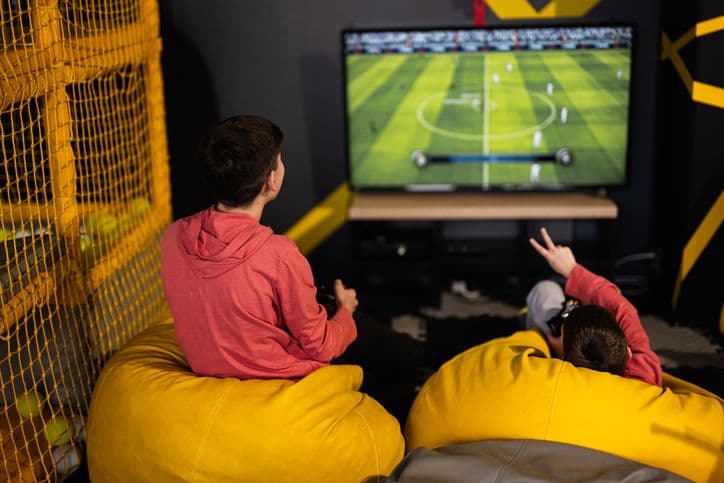Research
Video games can have a positive effect on children if they are designed correctly: Study

FDC-Friendly
Freya Lucas
May 03, 2024
Save
Video games can potentially contribute to and support the well-being of children if they are designed with the needs of children in mind, according to new research from UNICEF Innocenti – Global Office of Research and Foresight.
The study found that games can support children’s senses of autonomy, competence, creativity and identity, as well as help them regulate emotions and build relationships.In order to support one or more of these aspects of well-being, games need to contain certain features. For example, to support children’s sense of autonomy, a game could put them in control, allow them to make decisions about gameplay and encourage them to develop their own strategies to progress. Or to support creativity, a game could allow children to freely explore and solve problems or create their own characters or narratives.
Conducted as part of the Responsible Innovation in Technology for Children (RITEC) project, the study found that digital games, when designed well, can allow children to experience a sense of control, have freedom of choice, experience mastery and feelings of achievement, experience and regulate emotions, feel connected to others and manage those social connections, imagine different possibilities, act on original ideas, make things, and explore, construct and express facets of themselves and others. These experiences are all important for children’s well-being and can support their development.
RITEC is an international collaboration between organizations that believe the design and development of digital technology should support the rights and well-being of children. The project was co-founded by UNICEF and the LEGO Group and is funded by the LEGO Foundation.
Produced in partnership with the University of Sheffield, New York University, City University New York and the Queensland University of Technology the study establishes that digital games companies and games designers can and should support the well-being of children through the games they produce, convincingly demonstrating that digital play has a particularly positive impact on children’s well-being when it responds to their deep interests, needs and desires.
Also included in the RITEC project is the Joan Ganz Cooney Center, the Young & Resilient Research Centre at Western Sydney University; the CREATE Lab at New York University; the Graduate Center, City University of New York; the University of Sheffield and the Australian Centre of Excellence for the Digital Child.
“For decades, people have often assumed that playing video games is somehow bad for children, undermining their well-being. But our new study paints a far more complex picture – one in which these games can actually contribute to children’s well-being and positively support them as they grow up,” Bo Viktor Nylund, Director of UNICEF Innocenti said.
“But not all children are impacted positively by video games, and – crucially – not all games are having a positive impact on children. In fact, for games to support the well-being of children, game designers must take the needs of children into account and design games that support those needs,” Mr Nylund said.
Speaking on behalf of the LEGO Group Anna Rafferty, Senior Vice President of Digital Consumer Engagement said the exciting research shows that safe and inclusive digital play can have a profoundly positive impact on children’s lives.
“We’re proud to be partnering with like-minded organisations to understand how digital experiences can be designed in a way that puts children’s well-being first,” she said.
“These findings will empower responsible businesses to create a digital future where children are safe, nurtured and equipped to thrive.”
“This research helps us understand not only how video games can impact the well-being of children, but also helps the producers and designers of these games understand what elements they can include to support children. We hope they will consider these findings as they design the games our children will be playing in the future,” she added.
Read the report here.
Don’t miss a thing
Related Articles



















